Coronavirus pandemic
askST: Do I need to be tested for Covid-19 if I have a cough?
Sign up now: Get ST's newsletters delivered to your inbox
As schools reopen following the circuit breaker measures, the multi-ministry task force has expanded the list of people who will be actively tested for Covid-19 infection to include students aged 13 and up who have acute respiratory infection. Such tests may be done at clinics and polyclinics under the Swab And Send Home programme.
The Straits Times spoke to two doctors from such clinics - family physician Dale Lim of The Tenteram Clinic and general practitioner Raymond Ong of Intemedical 24h clinic (Ang Mo Kio) - to find out more about what such testing might mean for you or your child.
Q: What is an acute respiratory infection?
A: This refers to any infection within a group of illnesses that affect the sinus, nose, throat or lungs - regardless of whether one has a fever. A sore throat, cough or runny nose would fall under this category.
"Acute" here refers to the condition's sudden onset of symptoms that have a short course, as opposed to chronic conditions such as diabetes, and not the severity of one's condition.
Q: What is the Swab And Send Home (Sash) programme?
A: Previously, all swab tests for Covid-19 were done at hospitals.
In April, however, ST learnt that this was extended to polyclinics and some general practitioner clinics. This helps to strengthen active case-finding in the community, as well as reduce crowds at hospitals.
Under the programme, patients who meet certain criteria are swabbed and then sent home to wait for their test results.
Their swab samples are sent to a lab, and testing can take up to three working days.
Q: Is it free to get tested?
A: The swab test itself is free, although you may have to pay a fee for consultation and medication at the clinic where you are diagnosed.
Q: Does getting tested hurt? What does it involve?
A: Testing is generally painless, although there may be some degree of discomfort or ticklishness, and you may feel like sneezing or coughing during the process.
It involves inserting a small flexible stick with a tiny brush at its tip into the nostrils to collect nasal fluids, and capture any viral particles in the process.
The entire process takes less than half a minute.
Some patients may experience a slight nosebleed, but this is safe and there is nothing to worry about.
Q: Can I refuse to be tested?
A: It is strongly encouraged that you be tested if you meet the criteria - not just for public health reasons, but also because it will allow you to receive timely and appropriate treatment if you have Covid-19.
-
Ask ST
If you have a question about the easing of restrictions, e-mail us at askst@sph.com.sg
While doctors cannot compel you to get tested, the authorities have powers under the law to mandate testing, although they prefer to encourage patients to step forward and get tested on their own accord.
Q: Can I get tested even though I am well?
A: No. Testing resources are currently limited, so there is a need to prioritise those who are at a higher risk of infection or spread.
Your doctor will determine if you meet the swabbing criteria based on your clinical condition and circumstances.
Q: Must I take precautions when returning home to wait for swab results?
A: You are advised to avoid taking public transport. Instead, take your own private transport, a taxi or a private hire vehicle.
If you are taking either of the latter two options, wear a mask and sit alone in the back seat. The windows of the car should be wound down and the air-conditioning switched off.
Q: How about when I am at home waiting?
A: You are advised to isolate yourself at home while waiting for the results. Stay in a separate room at home and minimise contact with other family members, especially seniors. This means you should ideally use a separate toilet, and not share meals with your family.
Maintain good personal hy-giene such as washing hands with soap and water frequently, and avoid touching your eyes, nose and mouth.
If you find it difficult to main-tain this separation, it may be a good idea to find alternative li-ving arrangements.
To play it safe, assume you are Covid-19 positive until you are told otherwise.
Q: How will I know when the results are ready?
A: Your doctor will call to inform you of the swab test results, whether they are negative or positive. You may also get a call from the National Centre for Infectious Diseases.
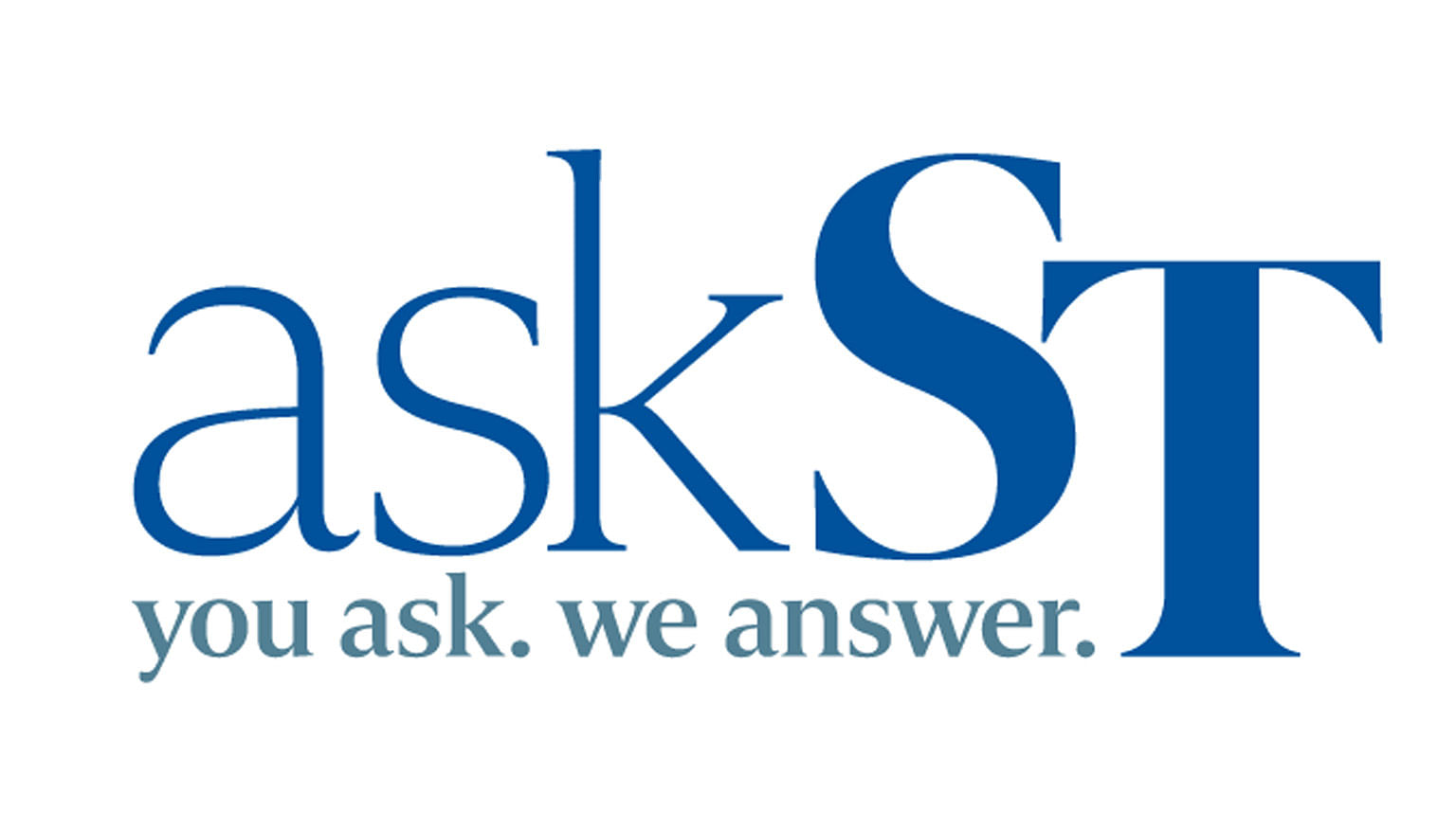
Q: Where can I go to get tested?
A: Tests can be carried out at polyclinics and clinics under the Sash programme.
If you are assessed to have symptoms suggestive of Covid-19 but your doctor is unable to carry out a swab, you will be referred to another healthcare institution that has the ability to test you.
What does testing for Covid-19 entail?
Singapore is expanding its testing capacity to improve its ability to control the spread of the virus as the economy gradually reopens.
Where testing is done
• Mass testing has been conducted at foreign worker dormitories and at some polytechnics for pre-school staff.
• Mass testing has been conducted at foreign worker dormitories and at some polytechnics for pre-school staff.
• At hospitals, and at 196 polyclinics and general practitioner clinics.
• Four regional screening centres at Old Police Academy, The Float @ Marina Bay, Bukit Gombak Sports Hall and Bishan Sports Hall.
• A fifth centre will open later at 2 Bedok North Street 2, a former sepak takraw sports hall.
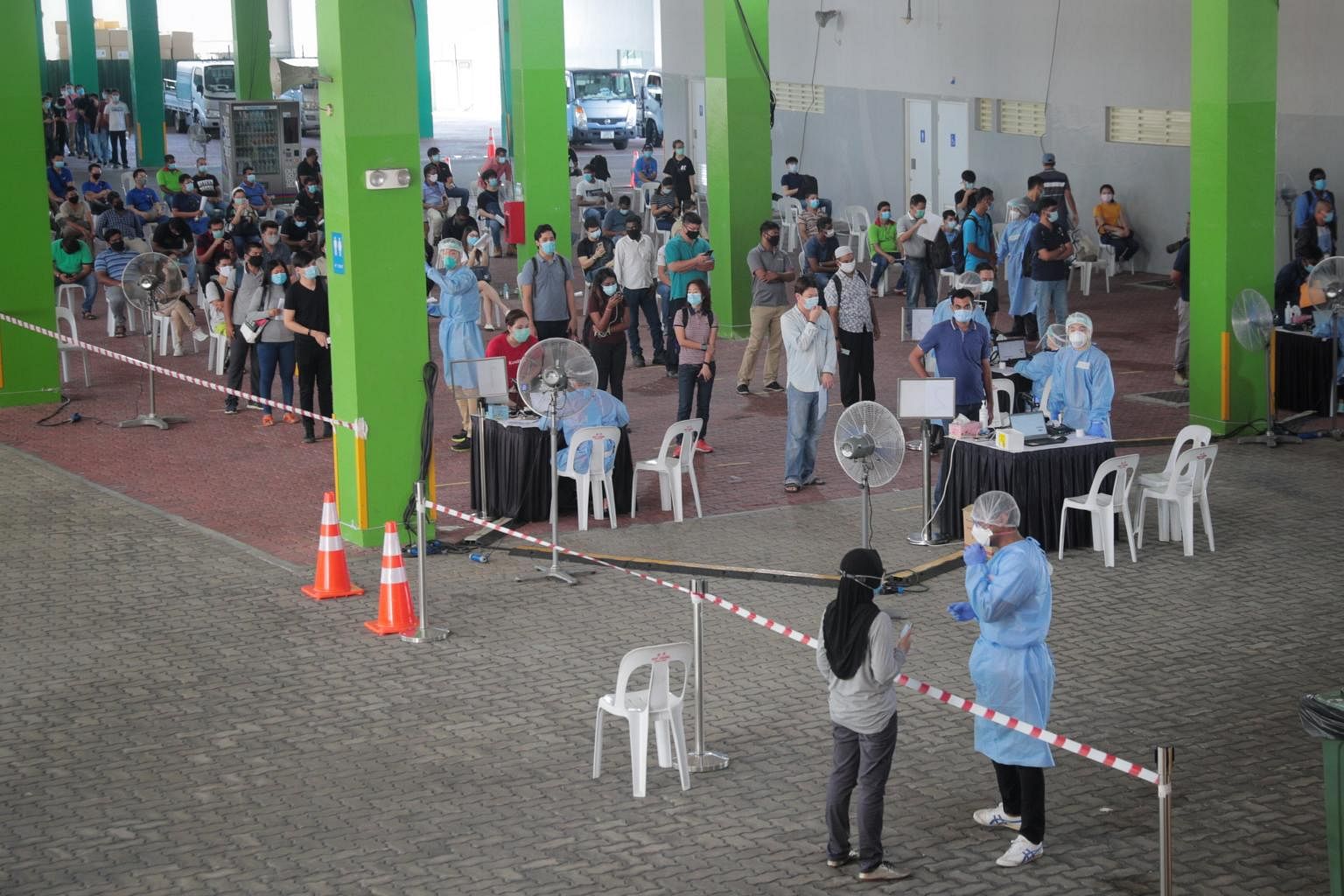
Essential workers being screened forCovid-19 at the regional screening centre at The Float @ Marina Bay.
ST PHOTO: JASON QUAH
Groups tested so far include:
• Staff and residents of senior homes
• Pre-school workers
• Essential workers including front-line officers and healthcare workers
• Migrant workers in foreign worker dormitories, some of whom are in essential sectors
• People diagnosed with acute respiratory infection when they visit the doctor, with priority given to:
- Seniors above 65 years old
- Healthcare workers
- Staff from educational institutions and students who are aged 13 and older
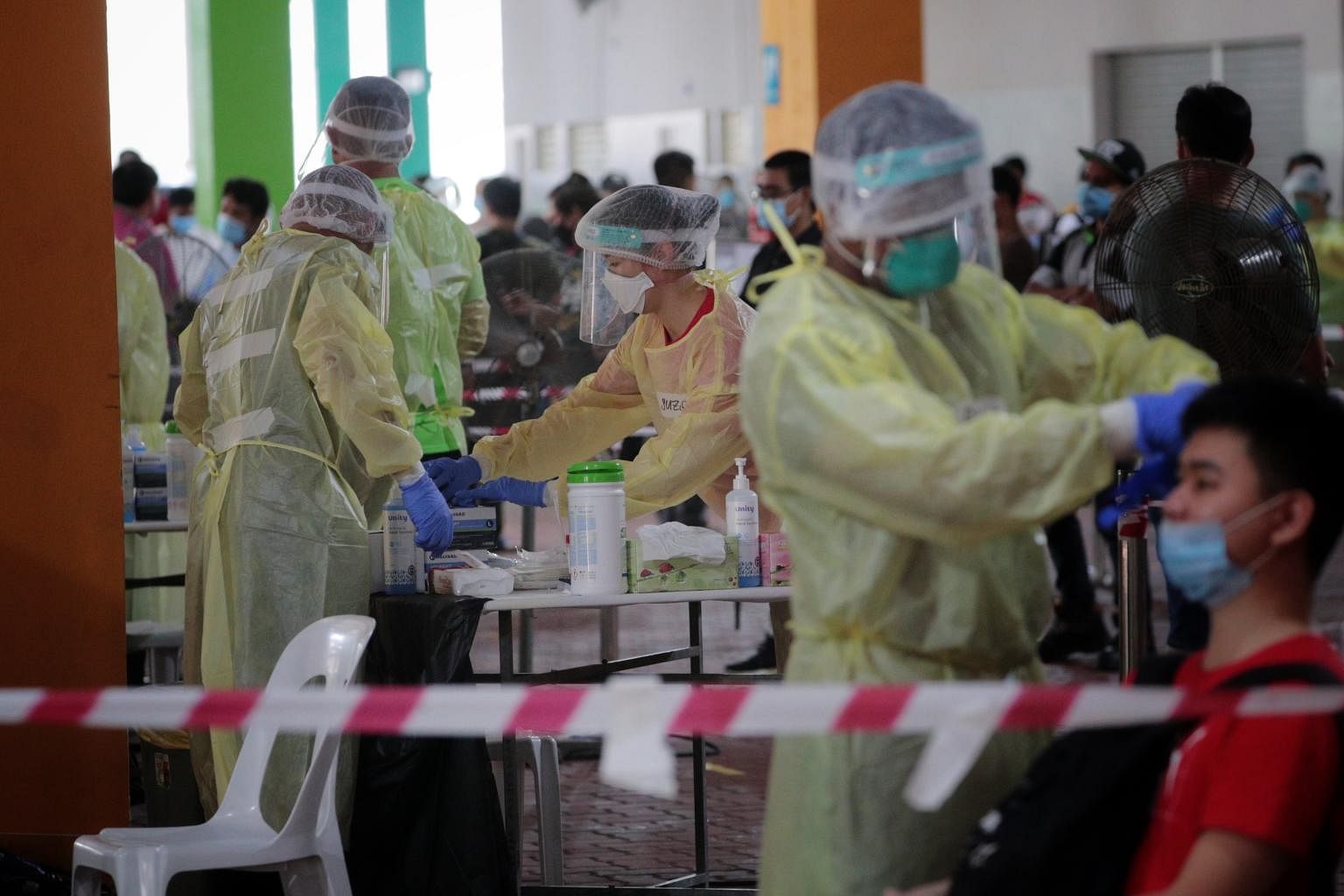
What is the test
The polymerase chain reaction (PCR) test looks for Covid-19 genetic sequences which indicate if a person is infected.
The polymerase chain reaction (PCR) test looks for Covid-19 genetic sequences which indicate if a person is infected.
What to expect during a PCR test
• The swab test is free of charge and will take 3 to 4 minutes.
• Most laboratories can give the results on the same day.
• Take along your ID card as multiple checks are likely to be conducted to ensure that the swab test is conducted on the right person.
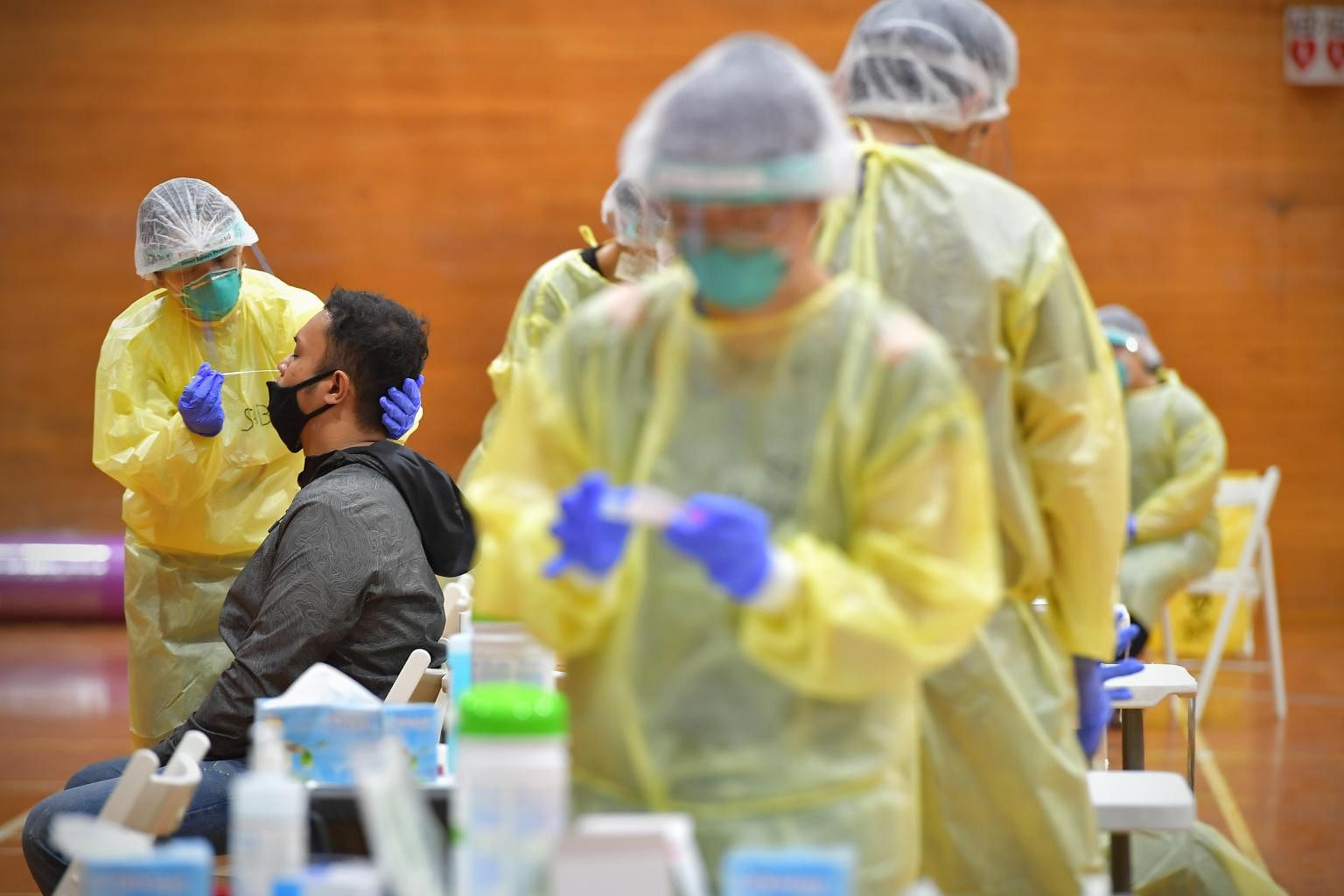
How the PCR test is done
• Samples are taken from the nasopharynx (the back of the nose) or from the oropharynx (the back of the throat). The back of the nose is often the preferred sample source as it has the highest viral load among Covid-19 patients.
• A nasal swab will not be conducted if you have had any nose bleed, surgery or injury recently.
Nose swab
• Tissue paper will be provided. Blow your nose to clear all mucus. Once you are done, throw the tissue paper into the trash bin for biohazard waste.
• Lean your head backwards, and lift your chin.
• A cotton swab will be placed in each of your nostrils, all the way to the back of the nose for two to three seconds each. Remember to stay still. You may tear or feel slightly uncomfortable.
• Raise your hand if you experience any pain or discomfort.
• Once the swab is finished, the sample is placed in a biohazard bag labelled with your name
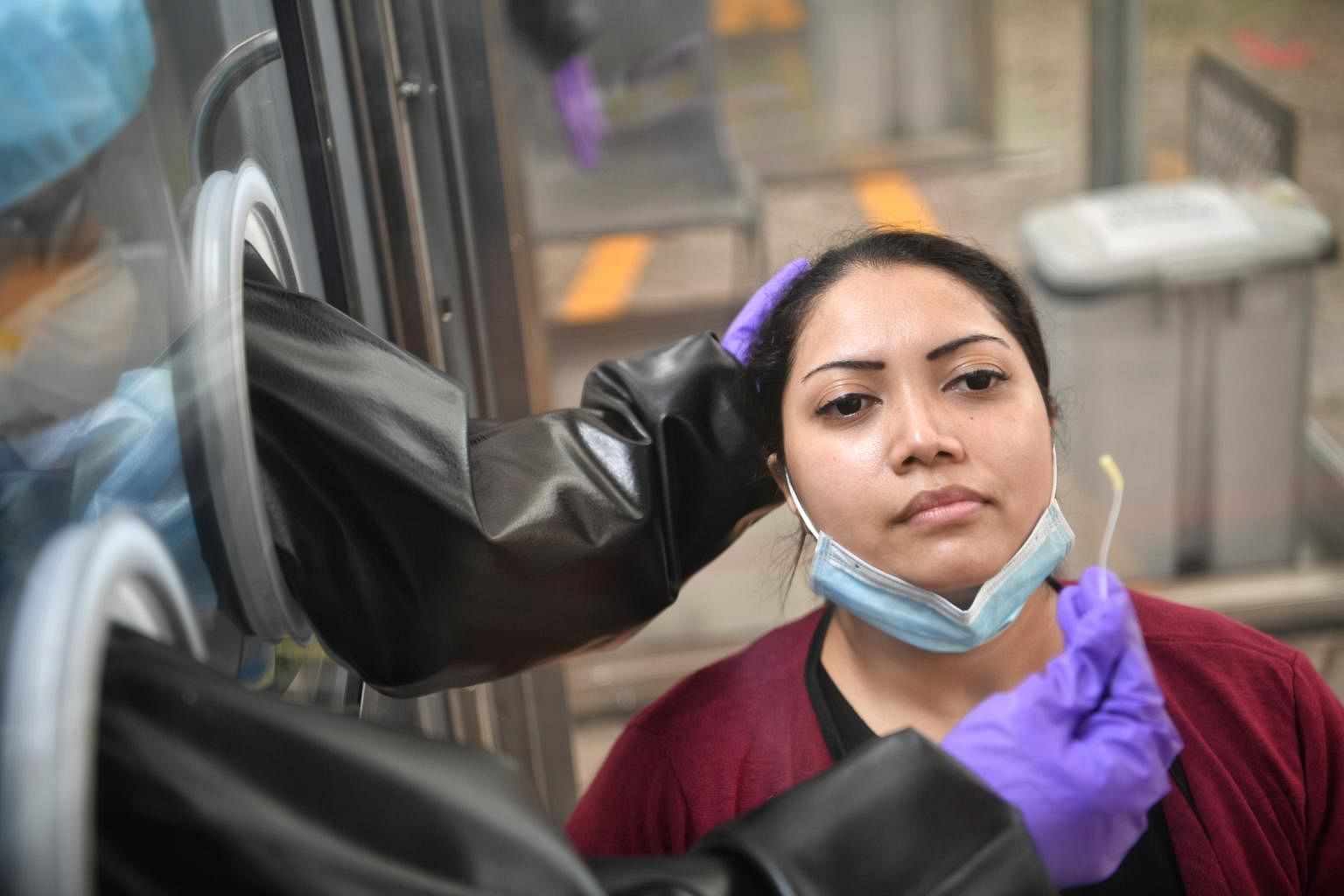
A nurse shows the swab stick to the patient during the mock up swab test at Gleneagles Hospital, on June 5, 2020.
ST PHOTO: ARIFFIN JAMAR
Oral swab
• Tilt your head backwards, open your mouth wide and say "ah".
• A cotton swab will be placed down your throat, for around 2-3 seconds. Remember to stay still. It may feel ticklish or slightly uncomfortable.
• Raise your hand if you experience any pain or discomfort.
• Once the swab is finished, the sample is placed in a biohazard bag labelled with your name.
SOURCE: DR MELVIN HENG, CHIEF OPERATING OFFICER, GLENEAGLES HOSPITAL


